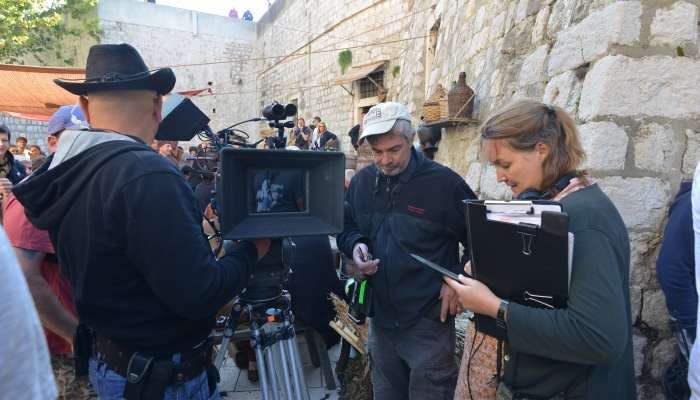Tax Incentives Stimulate Film Service Export Growth

‘A map of tax incentives and their impact on film and audiovisual production in Europe’ is the title of a study that for the first time includes information related to the Croatian audiovisual industry and our tax rebate system managed by HAVC to attract international productions and service export.
Organised by the European Audiovisual Observatory, last week a presentation and a roundtable took place in Brussels, presenting a study made by the renowned Olsberg·SPI consultancy from London. The study shows a broader analysis of the implementation and effects of government incentives in eight selected countries. In addition to Croatia, the study includes Belgium, Czech Republic, France, Hungary, Ireland, Italy and United Kingdom.
In 2012 Croatia also adopted the European practice of incentivising the audiovisual industry with the amendments to the Audiovisual Activities Act, which enable a 20 per cent rebate on expenditure to an international film or TV series production. It took only three years to achieve visible results, which indicate a significantly greater potential of the local audiovisual industry in terms of film service export, i.e. income growth, employment, development, but also influence on the revenues of other industries, especially tourism.
Game of Thrones is the biggest catch in the Croatian incentive net, but this does not shadow the meaning of other success stories, like the films Diana, Cure – The Life of Another, Island of Love, A Patriotic Man, Itsi Bitsi, Swedish children’s series Christmas in the Sun, and the American serial Dig, where Split and Trogir play the Holy Land. Between 2012 and 2014 the film incentives resulted in a total of 18 international productions from America, United Kingdom, France, Germany, Switzerland, Finland, Denmark, Sweden, Slovenia and the Netherlands.
Croatia is new on the European incentive map, and stands out from the previous ones by the exceptional growth rate in the first years of implementation. In the first year the spending of international productions amounted to 25 million kuna, the second year it was around 50 million and this year around 100 million will be earned. The extremely high interest in filming in Croatia brings new demands for the government and the local audiovisual industry. Ensuring greater funds is necessary if we want to stay in tune with the high growth rate in international productions’ expenditures. Since the Croatian incentive model is largely self-financing, it does not present a burden to the state budget but in fact fills it.
‘Today the incentives are a necessary prerequisite for serious film service export, but not enough. Everyone in Europe and beyond acknowledge the important role HAVC (and the government in this case) played in building trust in the international audiovisual community, equally contributed by our professionals, producers and professional teams, indispensable to make a film. We have earned that trust and the recent results show that,’ said Sanja Ravlić, member of the Incentive Committee at HAVC and the Croatian representative at Eurimages.
The study finally shows multiplying impacts of the incentives – they increase inter-European film production, bring cultural, creative and economic benefits and represent an important corrective measure of particular market anomalies, i.e. misbalances.
Late this year HAVC is organising a presentation of this study in Zagreb, and will also illustrate the possibilities for further growth of service export and audiovisual industry development.
Title photo: the set of Game of Thrones / photo by: Željko Tutnjević
